Deck 7: Systems of Linear Equations and Inequalities in Two Variables
Question
Question
Question
Question
Question
Question
Question
Question
Question
Question
Question
Question
Question
Question
Question
Question
Question
Question
Question
Question
Question
Question
Question
Question
Question
Question
Question
Question
Question
Question

Unlock Deck
Sign up to unlock the cards in this deck!
Unlock Deck
Unlock Deck
1/30
Play
Full screen (f)
Deck 7: Systems of Linear Equations and Inequalities in Two Variables
1
Determine whether the ordered pair is a solution of the system of equations shown below. Ordered pair  System of equations
System of equations 

A) No
B) Yes
C) Cannot be determined
 System of equations
System of equations 

A) No
B) Yes
C) Cannot be determined
Yes
2
Solve the system by graphing: 
A)
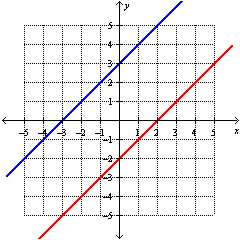
B)
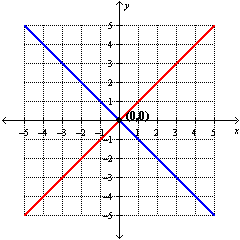
C)
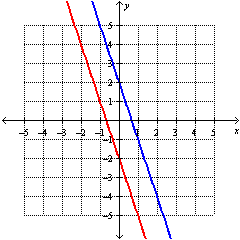
D)
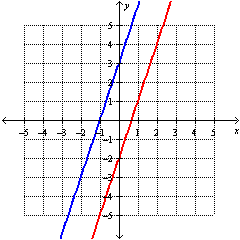

A)


B)


C)


D)




3
The ordered pair (1, 3) is a solution of the given system. 

True
4
Graph the inequality. 
A)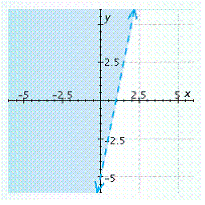
B)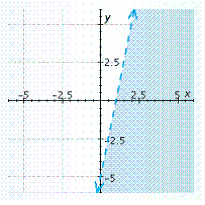
C)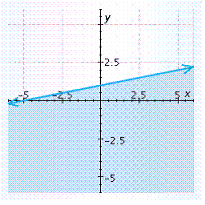
D)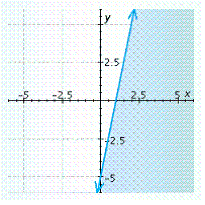
E)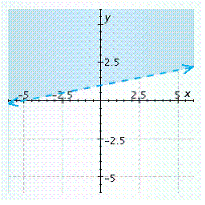

A)

B)

C)

D)

E)


Unlock Deck
Unlock for access to all 30 flashcards in this deck.
Unlock Deck
k this deck
5
Solve the system by graphing: 
A)
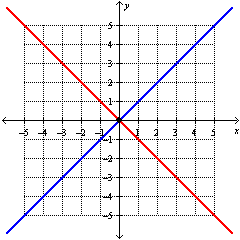
B)
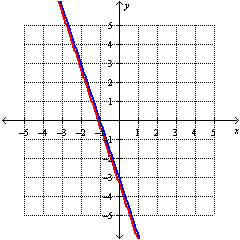
C)
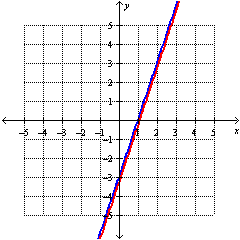
D)
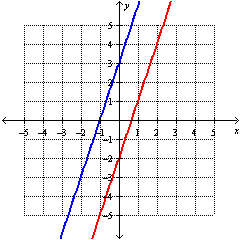

A)


B)


C)


D)



Unlock Deck
Unlock for access to all 30 flashcards in this deck.
Unlock Deck
k this deck
6
Use two equations in two variables to solve the following problem. A rancher raises five times as many cows as horses. If he has 204 animals (cows and horses only), how many cows does he have?
A) 170 cows
B) 190 cows
C) 210 cows
D) 180 cows
E) 140 cows
A) 170 cows
B) 190 cows
C) 210 cows
D) 180 cows
E) 140 cows

Unlock Deck
Unlock for access to all 30 flashcards in this deck.
Unlock Deck
k this deck
7
Tell whether the ordered pair (- 5, 3) is a solution of the given system. 
A) no
B) yes

A) no
B) yes

Unlock Deck
Unlock for access to all 30 flashcards in this deck.
Unlock Deck
k this deck
8
Solve the system by graphing: 
A)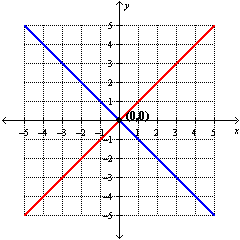
B)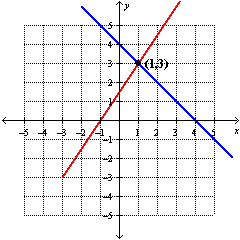
C)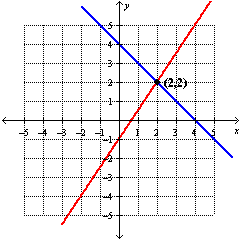
D)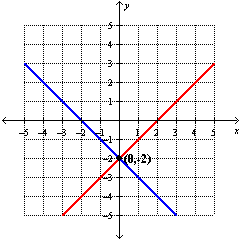

A)

B)

C)

D)


Unlock Deck
Unlock for access to all 30 flashcards in this deck.
Unlock Deck
k this deck
9
Last month, a bookstore ran the ad shown in Illustration and sold  calculators, generating $
calculators, generating $  in sales. How many of each type of calculator did the bookstore sell?
in sales. How many of each type of calculator did the bookstore sell? 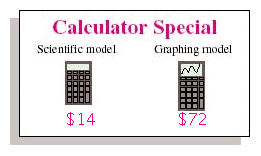
A) $14 calculators,
$14 calculators,  $72 calculators
$72 calculators
B) $14 calculators,
$14 calculators,  $72 calculators
$72 calculators
C) $14 calculators,
$14 calculators,  $72 calculators
$72 calculators
D) $14 calculators,
$14 calculators,  $72 calculators
$72 calculators
E) $14 calculators,
$14 calculators,  $72 calculators
$72 calculators
 calculators, generating $
calculators, generating $  in sales. How many of each type of calculator did the bookstore sell?
in sales. How many of each type of calculator did the bookstore sell? 
A)
 $14 calculators,
$14 calculators,  $72 calculators
$72 calculatorsB)
 $14 calculators,
$14 calculators,  $72 calculators
$72 calculatorsC)
 $14 calculators,
$14 calculators,  $72 calculators
$72 calculatorsD)
 $14 calculators,
$14 calculators,  $72 calculators
$72 calculatorsE)
 $14 calculators,
$14 calculators,  $72 calculators
$72 calculators
Unlock Deck
Unlock for access to all 30 flashcards in this deck.
Unlock Deck
k this deck
10
Solve the system by graphing: 
A)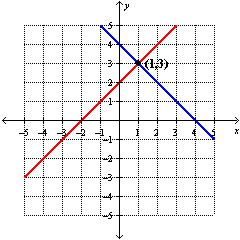
B)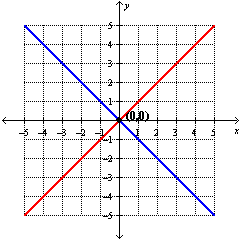
C)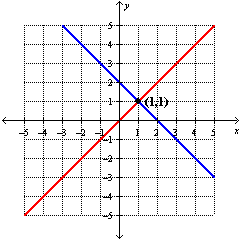
D)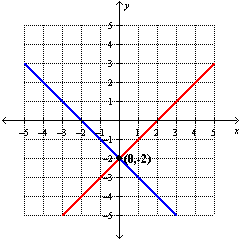

A)

B)

C)

D)


Unlock Deck
Unlock for access to all 30 flashcards in this deck.
Unlock Deck
k this deck
11
Solve the system by graphing: 
A)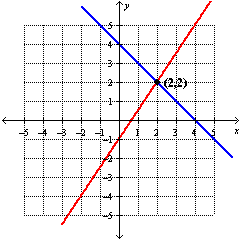
B)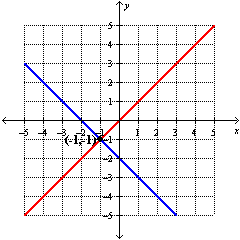
C)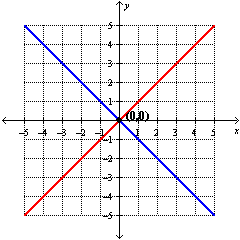
D)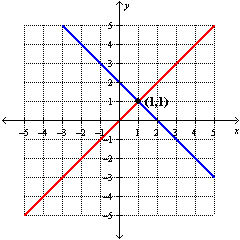

A)

B)

C)

D)


Unlock Deck
Unlock for access to all 30 flashcards in this deck.
Unlock Deck
k this deck
12
Solve the system by graphing: 
A)
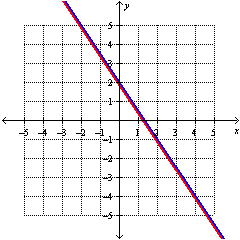
B)
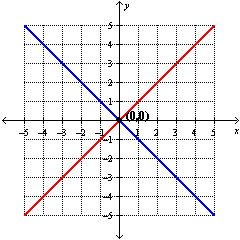
C)
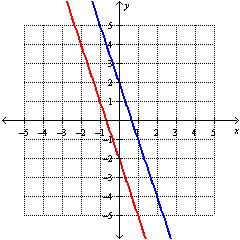
D)
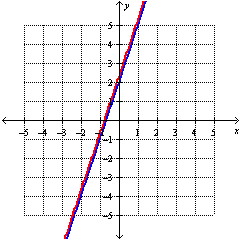

A)


B)


C)


D)



Unlock Deck
Unlock for access to all 30 flashcards in this deck.
Unlock Deck
k this deck
13
Graph the inequality. 
A)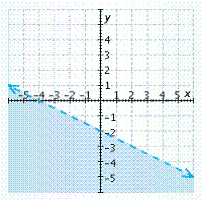
B)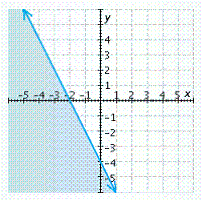
C)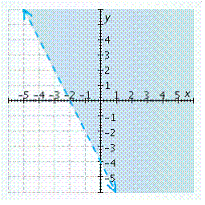
D)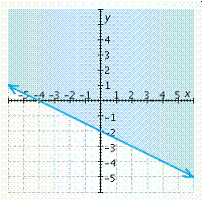
E)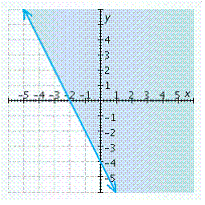

A)

B)

C)

D)

E)


Unlock Deck
Unlock for access to all 30 flashcards in this deck.
Unlock Deck
k this deck
14
Solve the system by graphing: 
A)
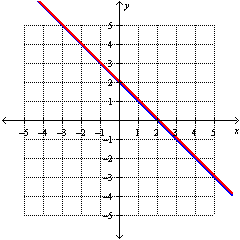
B)
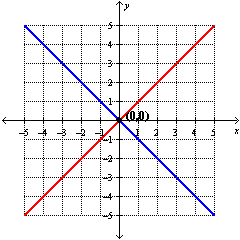
C)
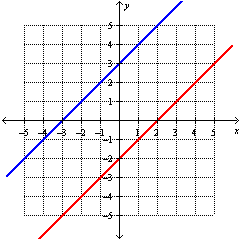
D)
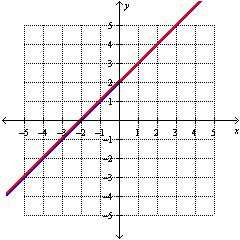

A)


B)


C)


D)



Unlock Deck
Unlock for access to all 30 flashcards in this deck.
Unlock Deck
k this deck
15
Solve the system by graphing: 
A)
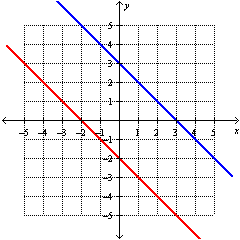
B)
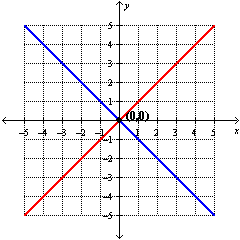
C)
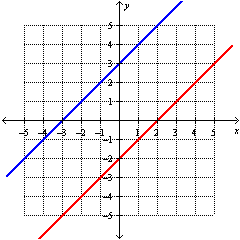
D)
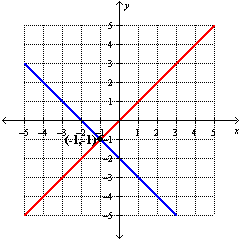

A)


B)


C)


D)



Unlock Deck
Unlock for access to all 30 flashcards in this deck.
Unlock Deck
k this deck
16
Decide whether the ordered pair  is a solution of the inequality.
is a solution of the inequality. 
 is a solution of the inequality.
is a solution of the inequality. 

Unlock Deck
Unlock for access to all 30 flashcards in this deck.
Unlock Deck
k this deck
17
Sue bought 3 packages of cookies and 2 sacks of potato chips for $3.63. Later she bought 5 more packages of cookies and 3 additional sacks of potato chips for $5.87. Find the price of a package of cookies.
A) A package of cookies cost $0.85.
B) A package of cookies cost $0.52.
C) A package of cookies cost $0.54.
D) A package of cookies cost $0.84.
E) A package of cookies cost $0.83.
A) A package of cookies cost $0.85.
B) A package of cookies cost $0.52.
C) A package of cookies cost $0.54.
D) A package of cookies cost $0.84.
E) A package of cookies cost $0.83.

Unlock Deck
Unlock for access to all 30 flashcards in this deck.
Unlock Deck
k this deck
18
Solve the system by graphing: 
A)
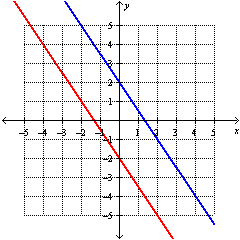
B)
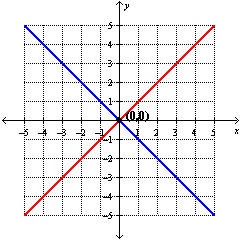
C)
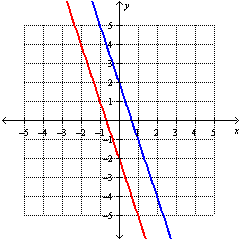
D)
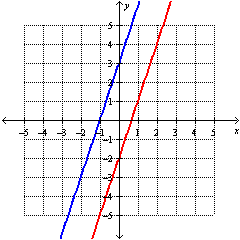

A)


B)


C)


D)



Unlock Deck
Unlock for access to all 30 flashcards in this deck.
Unlock Deck
k this deck
19
The graph of a linear inequality is shown. Tell whether point  satisfies the inequality.
satisfies the inequality. 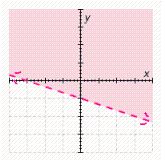
 satisfies the inequality.
satisfies the inequality. 

Unlock Deck
Unlock for access to all 30 flashcards in this deck.
Unlock Deck
k this deck
20
Decide whether each ordered pair is a solution of the inequality.  Answer yes or no .
Answer yes or no .  __________
__________  __________
__________  __________
__________  __________
__________
 Answer yes or no .
Answer yes or no .  __________
__________  __________
__________  __________
__________  __________
__________
Unlock Deck
Unlock for access to all 30 flashcards in this deck.
Unlock Deck
k this deck
21
Find the solution set of the system of inequalities. 
A)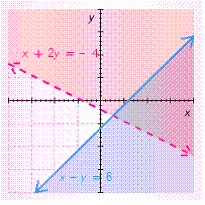
B)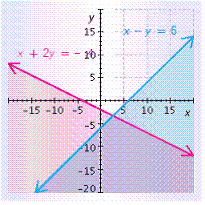
C)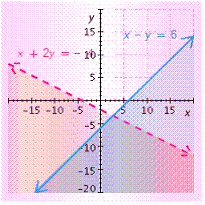
D)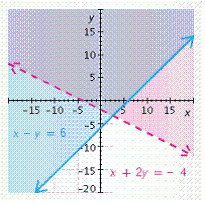
E)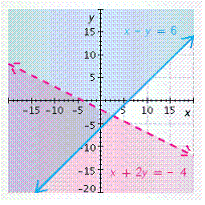

A)

B)

C)

D)

E)


Unlock Deck
Unlock for access to all 30 flashcards in this deck.
Unlock Deck
k this deck
22
Tickets to a concert cost $6 for reserved seats and $4 for general admission. If receipts must be at least $10,200 to meet expenses, graph an inequality that shows the possible ways that the box office can sell reserved seats ( x ) and general admission tickets ( y ). Graph the inequality for nonnegative values of x and y .
A)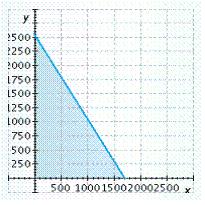
B)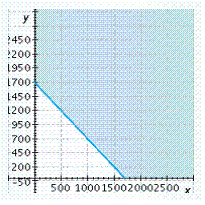
C)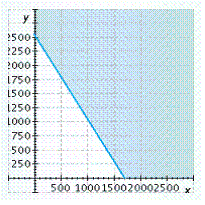
D)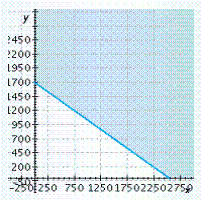
E)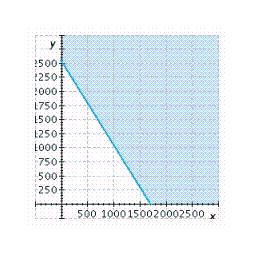
A)

B)

C)

D)

E)


Unlock Deck
Unlock for access to all 30 flashcards in this deck.
Unlock Deck
k this deck
23
Dry Boat Works wholesales aluminum boats for $500 and fiberglass boats for $300. Northland Marina wants to order at least $750 worth but no more than $1,500 worth of boats. Write a system of linear inequalities which describes all possible combinations of aluminum boats ( x ) and fiberglass boats ( y ) that can be ordered, graph the system of inequalities, and determine whether the ordered pairs satisfy the inequality.
A)
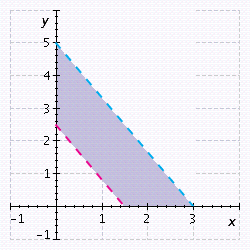

B)
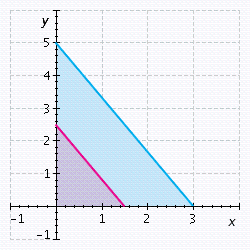

C)
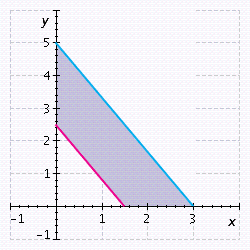

D)
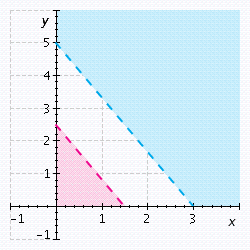

E)
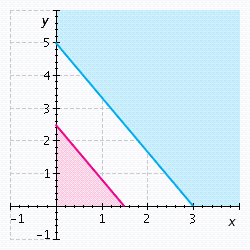

A)



B)



C)



D)



E)




Unlock Deck
Unlock for access to all 30 flashcards in this deck.
Unlock Deck
k this deck
24
A sporting goods manufacturer allocates at least 1,200 units of time per day to make fishing rods and reels. If it takes 15 units of time to make a rod and 30 units of time to make a reel, graph an inequality that shows the possible ways to schedule the time to make rods ( x ) and reels ( y ). Graph the inequality for nonnegative values of x and y .
A)
B)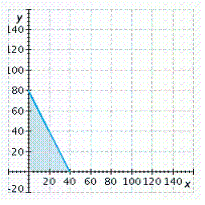
C)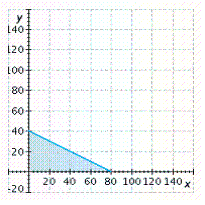
D)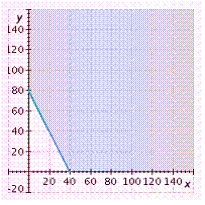
E)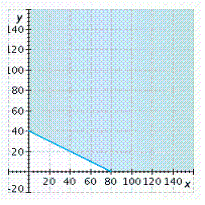
A)

B)

C)

D)

E)


Unlock Deck
Unlock for access to all 30 flashcards in this deck.
Unlock Deck
k this deck
25
Melodic Music has compact discs on sale for either $15 or $20. If a customer wants to spend at least $60 but no more than $120 on CDs, graph a system of inequalities that will show the possible ways a customer can buy $15 CDs ( x ) and $20 CDs ( y ).
A)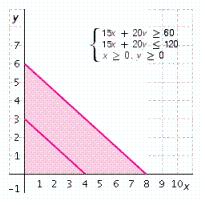
B)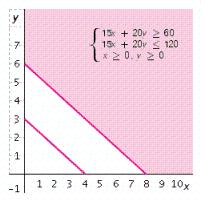
C)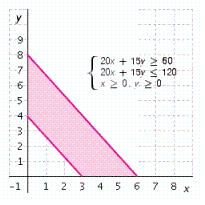
D)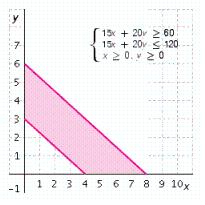
E)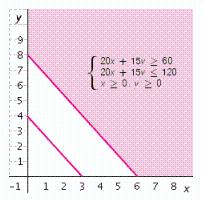
A)

B)

C)

D)

E)


Unlock Deck
Unlock for access to all 30 flashcards in this deck.
Unlock Deck
k this deck
26
On average, it takes an accountant 1 hour to complete a simple tax return and 4 hours to complete a complicated return. If the accountant wants to work no more than 8 hours per day, graph an inequality that shows the possible ways that simple returns ( x ) and complicated returns ( y ) can be completed each day. Graph the inequality for nonnegative values of x and y .
A)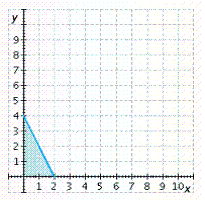
B)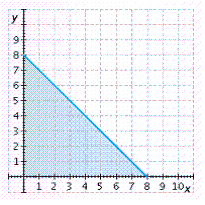
C)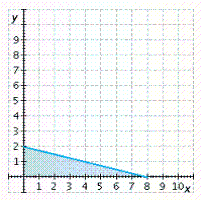
D)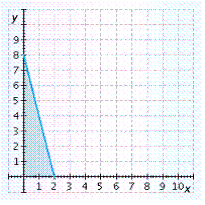
E)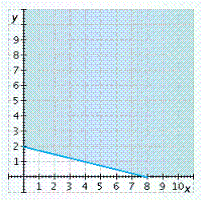
A)

B)

C)

D)

E)


Unlock Deck
Unlock for access to all 30 flashcards in this deck.
Unlock Deck
k this deck
27
Graph the inequality. 
A)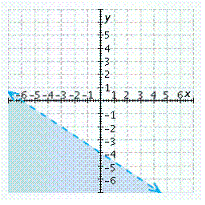
B)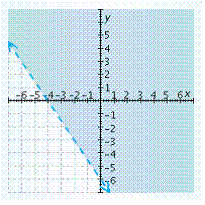
C)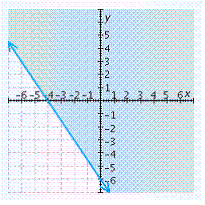
D)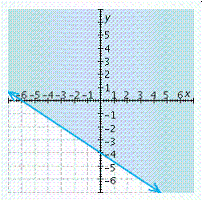
E)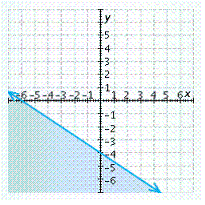

A)

B)

C)

D)

E)


Unlock Deck
Unlock for access to all 30 flashcards in this deck.
Unlock Deck
k this deck
28
A distributor wholesales desk chairs for $200 and side chairs for $100. Best Furniture wants to order no more than $1,200 worth of chairs and wants to order more side chairs than desk chairs. Find a system of inequalities whose graph will show the possible combination of desk chairs ( x ) and side chairs ( y ) that can be ordered, graph the system of inequalities, and determine whether the ordered pairs satisfy the inequality.
A)
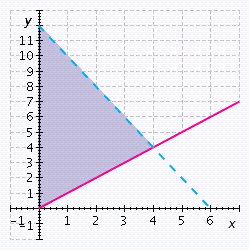

B)
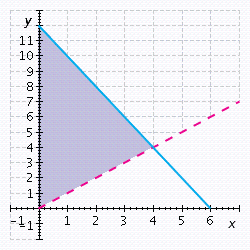

C)
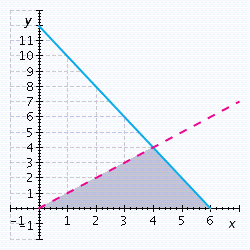

D)
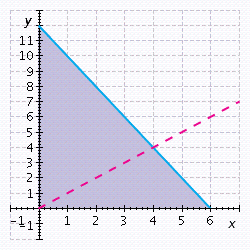

E)
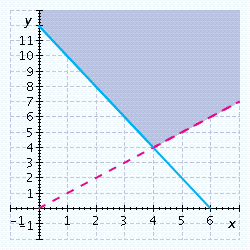

A)



B)



C)



D)



E)




Unlock Deck
Unlock for access to all 30 flashcards in this deck.
Unlock Deck
k this deck
29
Find the solution set of the system of inequalities. 
A)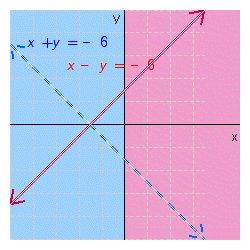
B)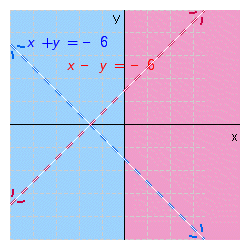
C)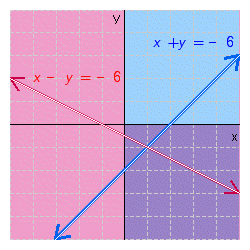

A)

B)

C)


Unlock Deck
Unlock for access to all 30 flashcards in this deck.
Unlock Deck
k this deck
30
Find the solution set of the system of inequalities. 
A)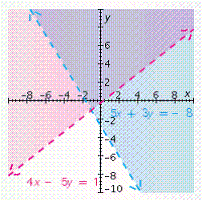
B)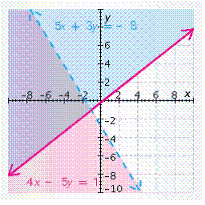
C)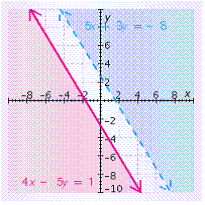
D)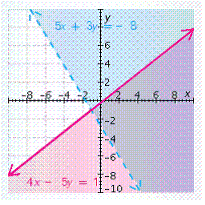
E)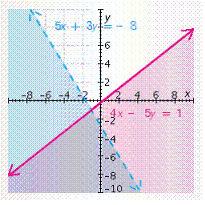

A)

B)

C)

D)

E)


Unlock Deck
Unlock for access to all 30 flashcards in this deck.
Unlock Deck
k this deck


